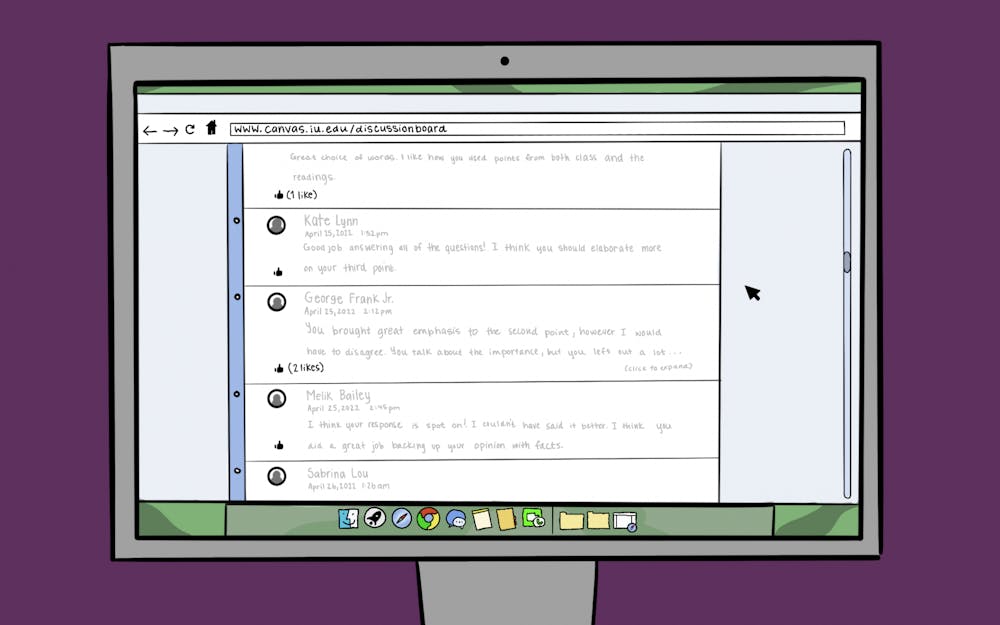Both times I took the ACT as a high school senior, I showed up shaking with nerves. The idea that a timed, multiple-choice test would determine my future college and career plans frightened me beyond belief.
The COVID-19 pandemic and graduating high school put an end to my days of standardized testing and now, the way we take tests has changed. A final test last fall for an IU School of Public Health class was probably the last scantron exam I will ever take in my entire life.
Since many professors have their exams on Canvas, it is evident that multiple choice, select all that apply, and true/false tests have no place in higher education. The Washington Post reports that multiple-choice tests do not allow for deeper level intelligence. I would agree.
In high school, I tried less hard on academics and relied on multiple-choice question comprehensive reading tests for English classes. I could guess what happened in the novel instead of reading it.
Objective tests had a time and place in our education, and IU is not the place. Writing out my thoughts can prove what I know about the material. I could easily write information I do not know, and for professors with exceptional knowledge in the field, it should be evident about what remains unclear in my understanding.
A written exam has some weaknesses. For example, writing for different classes results in various grades depending on the implicit biases within professors’ reasons for grading. Policy versus reflection-type writing presents different hurdles in my array of coursework. This stems from various expectations of what various professors are looking for.
There are many biases that could present inequalities in grading of participation, project and papers. Older faculty tend to have bias in gender and sexuality divides — even if they don’t express it, they have them. Everyone has judgments even when not verbally shared.
The identity divide in grading remains significant. Hard-working people experience less attention from professors when there is lack of connection between the student and instructor. Academic engagement can be difficult when enduring different classroom environments such as class size and demographics of your professor. As a young male, I feel younger professors are more approachable than older professors because in an age sense they are more in-tune to today's culture and norms.
Eliminating the objectivity of higher education grading requires articulate expectations and feedback from our professors. It is extremely frustrating giving a presentation or submitting a paper and not receiving feedback on where points were lost — and it happens way too often.
I also have suspicions about group work. Yes, valuable skills can be taught in group work that can help you succeed in later years — however, too much group work makes analysis of individual work difficult, increases chances of bias and eases the amount of grading needed to be done by professors.
Professors can also change their curriculum at any time. Almost all of the syllabi for classes in different IU schools I have taken across different IU schools include statements supporting a professor editing class work throughout the semester.
Many professors follow their set forth expectations, regulations and guidelines in syllabi, but recently, I have noticed an increase in differences between syllabi and assignment deadlines. This semester, I saw differentiating schedules, points given and deadlines in my classes — as students, we expect clarity from the people evaluating us.
There is no way to address all of academia’s inconsistencies. In order to demonstrate achievement, you must try your very best: retain as much knowledge as possible, engage in meaningful discussions and put your best foot forward when trying to do anything in academia.
John Hultquist (he/him) is a junior studying community health with a double minor in urban planning and community development and nutrition.






